Rabindranath Tagore
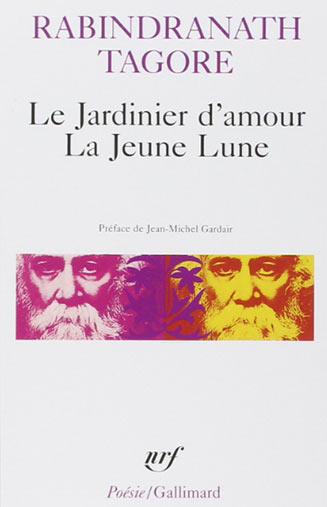
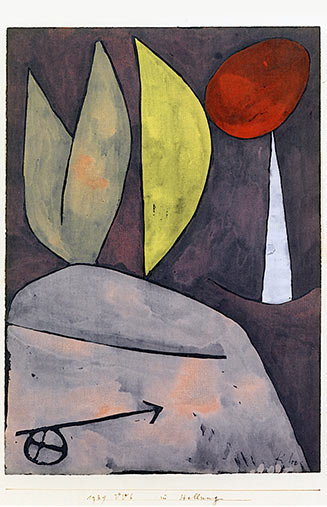
Paul Klee, In Position, 1939
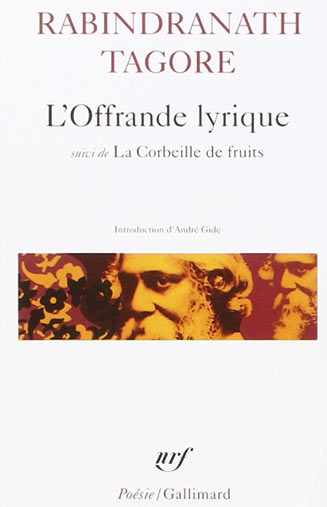
FROM ‘MARA, MARIETTA’
Prologue
̶ That’s Ganesha, Jagrati says, the Lord of Beginnings and Remover of Obstacles!
The boy studies the multi-armed god with the elephant head, depicted in gold and green on the side panel of a bookcase. I’d like a new beginning, he thinks, I’d like a helping hand. Still, he can’t imagine himself praying to such a creature. He steps to the bookcase and takes from a shelf the first volume of poetry he sees: Rabindranath Tagore, ‘Selected Poems’. On the cover, in the centre, intense eyes stare at something outside the photo frame—or are they staring inward? Despite the beard, the finesse of the man’s fine-boned features is striking. To his left, an English boy with a wide-eyed gaze; to his right, an elegant Indian man. This will be my book of prayer, the boy says to himself.
̶ That’s Tagore, Jagrati says, pointing to the bearded man. He’s a saint in Bengal.
The boy can’t take his eyes off the poet; everything about him combines to convey a mesmerizing power: The gentleness in his long hands, resting on his lap; the robe that falls wide-sleeved from his shoulders, reinforcing the impression of quiet pride and dignity; the concentrated calm in his eyes. Jagrati is intrigued by her friend’s fascination; she remains quiet, close by his side. That man beside Tagore could be my father, the boy thinks. He feels a bittersweet pleasure as he realizes the English boy in the picture looks perfectly at home. Gently from his thoughts Jagrati brings him back to her: The touch of her lips on his cheek, warm and petal-soft, blurs his vision as tears well up. She takes the book from his hands.
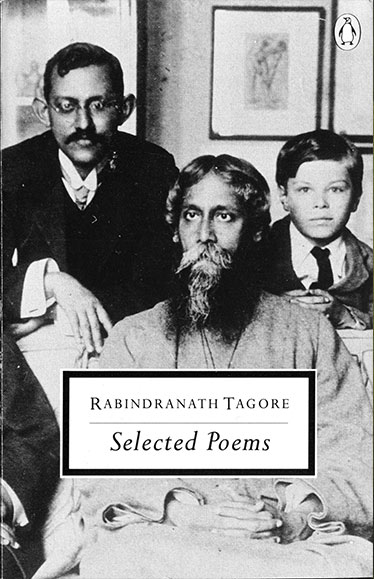
Translated by William Radice
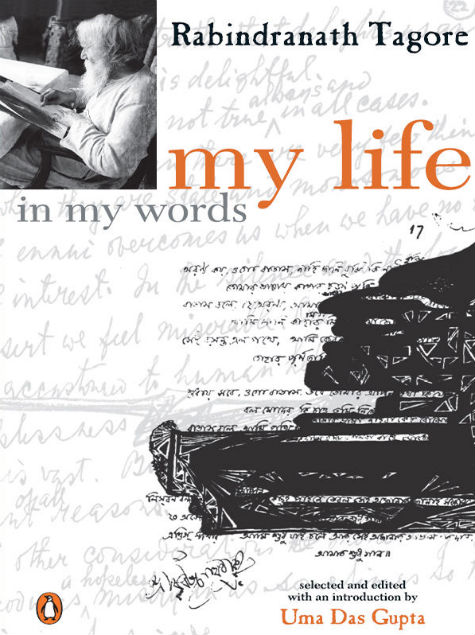
̶ Let me read you something.
She flips through the pages, then stops to read:
Whenever I spend painful, sleepless nights,
I always look forward
To your first tap-tap at my door.
The brave, nimble, simple
Life’s message that you bring—
Give it to me,
That the sunlight by which all creatures dwell
May call me,
Oh my daybreak sparrow!
̶ It’s better in Bengali, but you do get a sense of it, don’t you?
Oh Jag, when you read it, how could I not? the boy thinks. But he simply says:
̶ Yes.
Lest Jagrati’s remark—‘It’s better in Bengali’—lead you to underestimate the English, I hasten to affirm that the translation is exemplary in its justesse and—as its effect on Sprague proves—
works wonderfully. To get a sense of the translator’s challenge and achievement, see:
‘Tagore’s Poetic Greatness’: A lecture by William Radice.
Nobel Prize dossier: Tagore